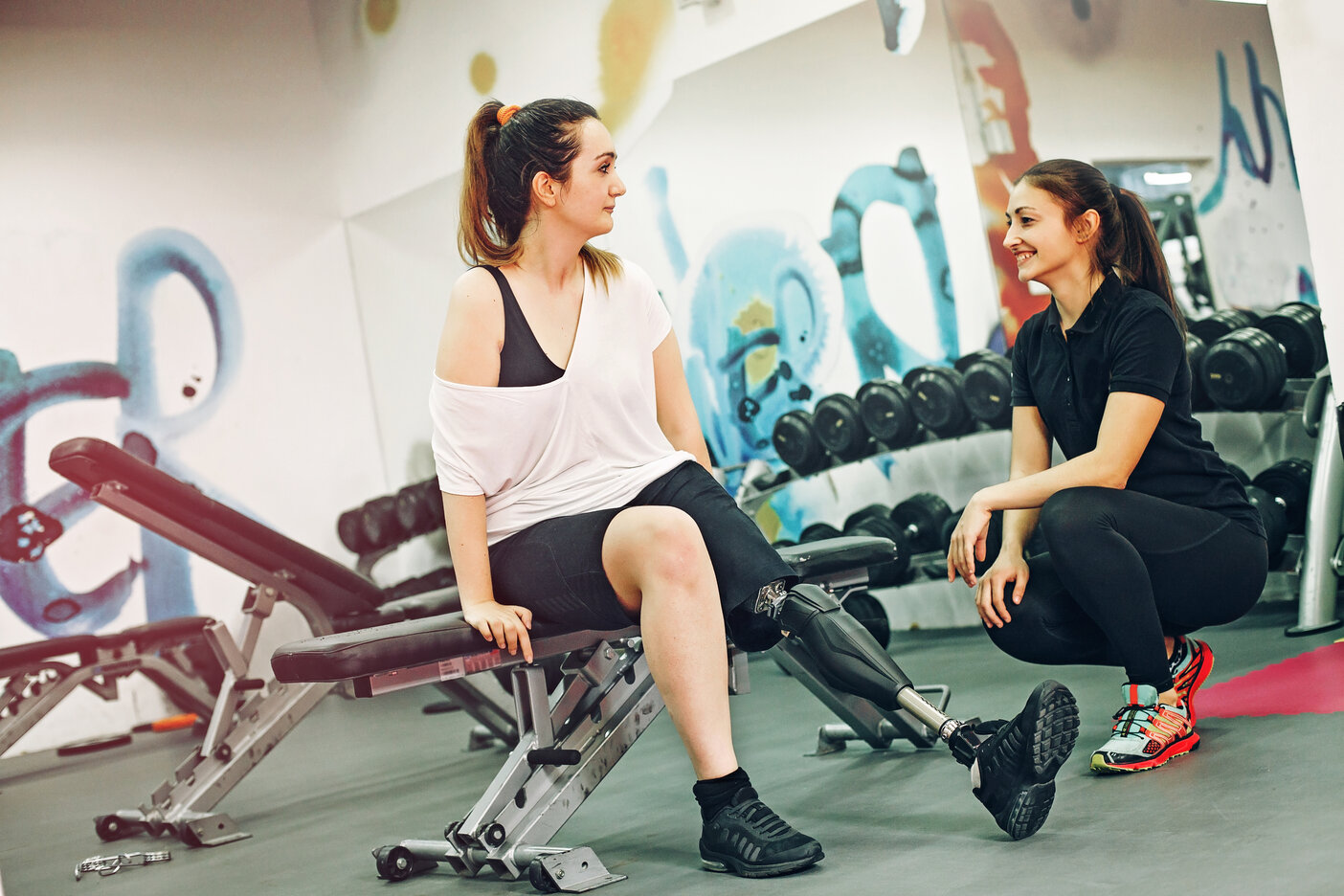At Healing Touch Rehab, our specialised team provides targeted physiotherapy sessions, through which our patients can regain their mobility and independence, overcoming any obstacles they may encounter along the way. We know firsthand the transformative impact therapy after an amputation can have on individuals. Rehabilitation therapy is a crucial step in the journey of those who have undergone this procedure. It is essential for improving quality of life and facilitating a successful recovery process for amputees. The road to recovery post-amputation is filled with challenges, but with targeted rehabilitation programs, patients can live a fulfilling and active lifestyle.
Amputation or Loss of a Limb
Amputation is a life-altering event that can result in permanent disability, impacting a person’s self-image, mobility, and overall function. The journey of rehabilitation for an amputee begins immediately after surgery and continues through the acute phase of treatment until they are fully integrated back into their community. During this period, a team of therapists and healthcare professionals work together to provide comprehensive care that addresses the physical, emotional, and psychological needs of the patient. This includes physical therapy to improve strength and range of motion in the residual limb or prosthesis, occupational therapy to enhance daily living skills and independence, as well as therapeutic techniques such as desensitisation to help manage pain and promote healing. Rehabilitation also involves specialised services like massage therapy, exercises tailored to individual needs, and educational support on how to properly use prosthetics for optimal function. By combining these therapies with proper wound care management and ongoing medical supervision, patients can achieve a successful recovery from amputation surgery.
Rehabilitation Depends on Many Variables
Level and type of amputation
Type and degree of any resulting impairments and disabilities
Overall health of the patient
Family support
Treatment Approach
We have a deep understanding of how amputations can impact individuals in various ways, depending on their unique responses to wound care, pain management, prosthetic fitting, and physical and occupational therapies. Our team of experienced therapists and healthcare professionals is dedicated to providing personalised care that addresses the specific needs of each amputee.
The need for a limb amputation can be caused by unexpected trauma, complications from diabetes, or other medical conditions. A patient who experiences limb loss may have an above or below-the-knee amputation, upper-extremity amputation, or a bilateral amputation. In these cases, occupational therapists play a vital role in providing therapeutic care and desensitisation techniques to aid in the recovery journey of patients after surgery.
Our team of expert therapists, specialising in rehabilitation and occupational therapy, is committed to assisting amputees in reclaiming their lives after limb loss. Our comprehensive treatment approach focuses on optimising physical function, mobility, and body image while restoring confidence in individuals who have undergone this type of surgery.
Our program for amputees focuses on a comprehensive approach to rehabilitation, encompassing strength training, functional recovery, and prosthetic fitting assessments. Our team of therapists tailors each treatment plan to the specific needs and goals of the individual patient post-amputation. We provide a range of services from pre-prosthetic care to post-prosthetic management, ensuring that our patients receive the best possible care throughout their healing journey.
Our team of occupational therapists specialises in working with amputees to facilitate their rehabilitation journey. We focus on helping patients regain independence by assessing their physical abilities, prescribing appropriate prosthetic devices, and designing personalised programs to improve their functional skills post-amputation. Additionally, we offer support for activities of daily living, vocational training, and leisure pursuits to ensure a holistic approach to our patients’ healing process.

Treatment goals vary for each patient, may include
- Pain management for both post-operative and phantom pain (a sensation of pain that occurs below the level of the amputation).
- Walking and/or climbing stairs independently
- Standing up with use of equipment as needed
- Advanced balance training and prevention of fall
- Managing daily routines such as dressing
- Transfer techniques such as getting in and out of bed, the car and get on/off the floor.
- Regaining overall strength and endurance
- Regaining confidence
- Educational or vocational placements
- Supporting Psychosocial wellbeing
The team encourages the family to be involved in this process of rehabilitation with collaborative working towards client centred goals.
Book a treatment home, school or community visit
To make clients feel as comfortable as possible, we offer home visits or arrange treatment at one of our community clinics at William Merritt Centre, Leeds, or a similar centre or location of your choice in your local community across the North West and Yorkshire, or we could arrange to see you at a suitable space within your community.
We appreciate our clients may have mobility restrictions and will always consider how to make consultations and treatments as convenient, time optimised and pain-free as possible. Community-based rehabilitation and integration back into the community is the key to any successful rehabilitation. Besides the benefit of a familiar environment and the discipline of following treatment plans within their own setting , community-based treatment enables the client to stay motivated while involving their family and friends.